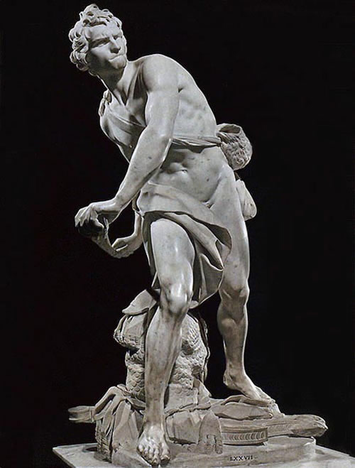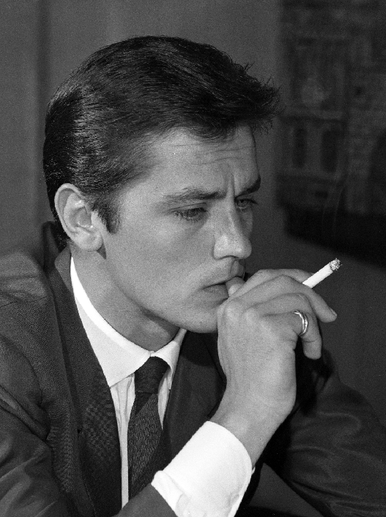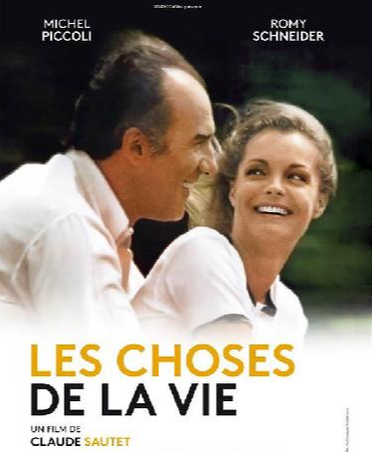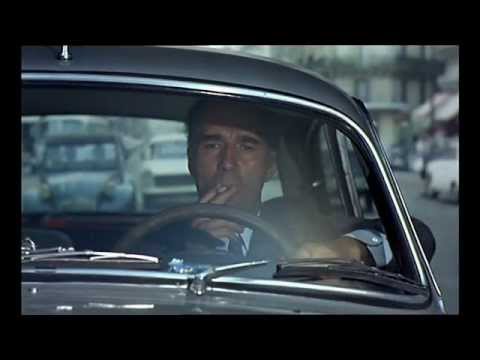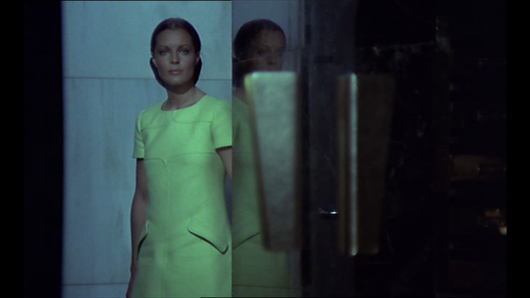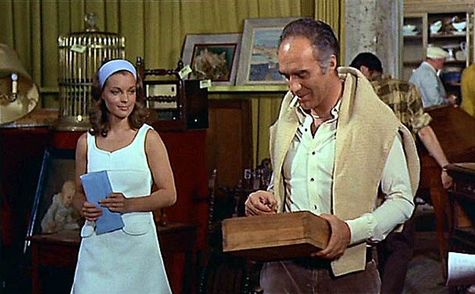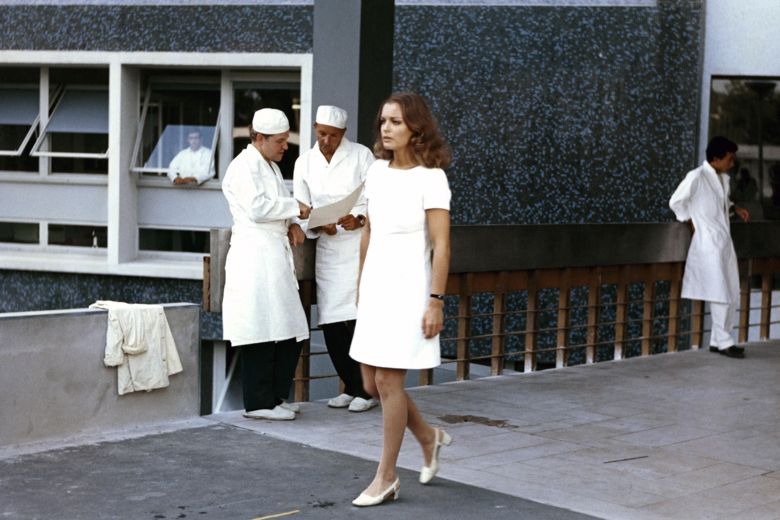|
Dear David, I am sorry for the late reply, I hate to write to you between flights and hotels and train journeyes, I like to indulge in that uncertainty travel can bring you: no destination, no tomorrow, no thoughts. And yes, I know you are right in saying the world is becoming more and more vulgar, but I do not agree that the fight against it can never be won. Nobody believed David can win over Goliath, bu he did, with his stone and sling. One quote: Alain Delon on the world of today"Mais surtout, je hais cette époque, je la vomis...il y a ces êtres que je hais. Tout est faux, tout est faussé. Il n'y a plus de respect, plus de parole donnée. Il n'y a que l'argent qui compte. On entend parler de crimes à longueur de journée. Je sais que je quitterai ce monde sans regrets" -Alain Delon entretien avec Paris Match "But above all i hate this time, it makes me want to vomit.....There are these things that I hate. Everything is wrong, everything is forced. There is no respect anymore, no more honor. Only money counts. We hear about crimes all day long. I know that I will leave this world without any regrets.¨ Thus said Alain Delon during his recent interview with Paris Match. The media has used ¨aigri" (embittered) to describe him It´s perhaps ironic for someone like him talking like this, while for decades in his life, it seemed only money counted for him and he has made fortune by selling crimes on screen to the public. But what he said resonates, and he can be forgiven. one film: les choses de la vie (1970)4483vd75. That is the plate number of Pierre’s car, when he drives toward his destiny, his death. The beginning is quite ordinary: the site of a car accident, two small children, passers by, the police, two truck drivers describing what has happened, all type of noises, people talking, wearing ugly clothes in garish colors. Then enters the music by Philippe Sarde, and everything changes. The film becomes a dream, unreal, at times frivolous, at times banal, but always suffused with delicacy, like a veil over a beautiful woman’ otherwise not perfect face. Pierre (played by Michel Piccoli) is an architect, but in typical French manner, he almost never does what an architect is supposed to do in a film. He always chain smokes, always drives, seldom talks, and almost never exposes himself, but through his slight frown when he uses one cigarette to light another one, his almost emotionless look behind the car window fogged by the rain, it seems as if you could see into this man, the man who lives between past and present, even at times the future(thanks to the director Claude Sautet's unusual futuristic sequences), between memory, reality and premonition, his confusion, fatigue and suffocation, the man who loves the woman in his life now, his mistress, but never seems emotionally separated from the woman who used to be his wife. « tu m’aimes parce que je suis là ».(you love me because I am here) Hélène (played by Romy Schneider)his mistress says to him in the car. They just leave a party. She wears a short white sleeve dress, he says nothing. « Je suis fatigué, fatigué de t’aimer. » (I'm tired, tired of loving you) She continues, he still says nothing. And somehow, during her long monologue, he decides to end it. « Mais comme ca, sans rien.. » (But not like this, without anything else). She is shocked and she protests. « Tu sors? » he asks her, two times, when he stops the car in front of her house. « Tu n’as rien à me dire? » Hélène finally decides to get out of the car, but she is still trying. « Non » he smiles at her. « Tu m’a appèleras? » (Will you call me?) She is already out of the car, but she does not want to give up. « Bien sûr. »(Of course.) he smiles again. She walks away, he sits in the car, uses one cigarette to light the new one, throwing the old butt out of the window, then drives away, all seen by Hélène who reappears behind the column beside the gate of her home. It is heart breaking. It seems French directors are specialized in filming the abstract, the indescribable choses dans la vie (things in life), like the state in and out of love, like ennui, like state in and out of life. Claude Sautet is one of them, one of the best of them. He does not belong to the most internationally acclaimed new wave group, but I think he is greater than all of them. He has that extraordinary sense of time, silence, the meaning pregnated by silence between people, and expresses it beautifully, discreetly. And he knows how a dream can and should look like, and ilusions: Toward the end of his life, struggling between life and death, Pierre´s thoughts go to Helene, he hangs a pair of cherry on her ears, then kisses her behind her ears, taking the cherries, then kisses her. she is wearing white dress, they are getting married, all the family sitting on one side of the table, his son, his father, his friends, her family, then at the head of the table, sitting his ex wife Katherine and her lover. Pierre smiles, happy, until he gazes at another side of the large table, sitting there the police men, the truck drivers, the priest, the paramedics...people he met earlier at the site of his accident.....And children, joyful children, children who he saw on the road prior to the accident in a real wedding ceremony, also part of the ceremony, are starting to leave his wedding, and he is starting to leave his life... According to Philippe Sarde, the composer of the film, he also composed a song called chanson de Hélène, with the lyrics by Jean-Loup Dabadie who also writes the screenplay of the film, and sung by Romy Schneider and Michel Piccoli, but Claude Sautet did not want to use it, afraid that it will faire vieillir the film, make it look aged or outdated. Unlike un cœur en hiver, Claude‘s timeless masterpiece more than 20 years later, les choses de la vie does show the traces of its time period: the surroundings, the men’s shirts with very sharp tipped collars, women’s too thick makeup, in particular Romy Schneider’s dresses designed by André Courrèges. Romy Schneider is one of the few rare women who managed to look elegant, look like a woman in those colorful Lolita style A line mini dresses too high above the knee, but the film thus evokes unmistakably the youth quake and the 60’s…. But Claude achieved something else in this film: the poetic and perhaps unavoidable sadness of love, the unpredictable mystery of love created by fate, like an unread letter, like the letter written by Pierre just before his death to Hélène which will never be read by her. la chanson d’Hélène sung by Romy Schneider, accompanied by voice of Michel PiccoliLa Chanson D'Hélène Ce soir nous sommes septembre et j'ai fermé ma chambre Le soleil n'y entrera plus Tu ne m'aimes plus Là-haut un oiseau passe comme une dédicace Dans le ciel Je t'aimais tant Hélène Il faut se quitter Les avions partiront sans nous Je ne sais plus t'aimer Hélène Avant dans la maison j'aimais quand nous vivions Comme un dessin d'enfant Tu ne m'aimes plus Je regarde le soir tomber dans les miroirs C'est la vie C'est mieux ainsi Hélène C'était l'amour sans amitié Il va falloir changer de mémoire Je ne t'écrirai plus Hélène L'histoire n'est plus à suivre et j'ai fermé le livre Le soleil n'y entrera plus Tu ne m'aimes plus Translation in English: Tonight it is September and I closed my room The sun will no longer enter here You don’t love me anymore Up there a bird passes by like a dedication written in the sky Voice (of Michel Piccoli) I loved you so Hélène It has to stop The aeroplanes will leave without us I don’t know how to love you anymore Hélène In the house I used to love when we lived together Like the drawing of a child You don't love me anymore I watch the night fall in the mirrors This is life. Voice (of Michel Piccoli) It is better like this Hélène It was love without friendship We will have to change our memory I will not write to you anymore Hélène There is nothing to follow in the story and I have closed the book The sun will no longer enter here You don’t love me anymore Soit patient,
mon ami Comments are closed.
|
Archives
July 2023
|
